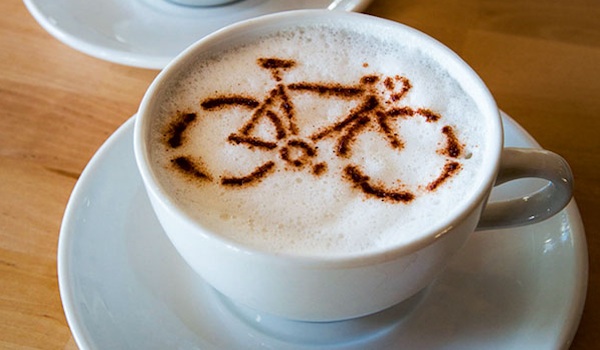 For many of us, the day doesn’t really begin until we’ve had that first cup of coffee, and a long ride isn’t really complete without the post-ride coffee break. But what exactly is that shot of espresso doing to your body, and how is it affecting your performance?
For many of us, the day doesn’t really begin until we’ve had that first cup of coffee, and a long ride isn’t really complete without the post-ride coffee break. But what exactly is that shot of espresso doing to your body, and how is it affecting your performance?
What is Caffeine and What Does It Do?
Caffeine is a stimulant found in a number of sources including coffee, tea, soft drinks, chocolate, and many sports drinks. When consumed, caffeine mainly affects the nervous and cardiovascular systems. Among other things, it increases the heart rate, stimulates breathing, and primes the central nervous system.
Because it’s a stimulant, caffeine can affect athletic performance in a number of ways. In addition to reducing fatigue, caffeine enhances muscular function and reduces a cyclist’s perception of effort. It also increases the concentration of endorphins and delays the onset of fatigue, allowing you to push harder and ride longer. In addition, caffeine has been shown to increase the amount of fat burned during exercise, while conserving carbohydrates.
It’s not all good news, however. Caffeine can interfere with restful sleep and has been associated with acid reflux disease and osteoporosis. It’s also a diuretic. Failing to modify water intake accordingly could lead to dehydration.
How Much Caffeine do You Need to Feel a Boost?
How much caffeine is needed to take advantage of its benefits will depend on a number of factors, including your size and your average caffeine intake. Over time, your body gets accustomed to caffeine and builds up a tolerance. To maximize the effects, it’s recommended that you lower your daily consumption to increase your body’s sensitivity.
The observed effects start at 2 mg of caffeine per kilogram of body weight and top off at a dosage level of approximately 5 mg. In other words, if you weigh 150 lbs, you should drink at least 255 mg of caffeine, but no more than 340 mg. There are 330 mg of caffeine in one grande cup of coffee from Starbucks, so you can use that as a rough guide when deciding how much to drink.
If you plan to use caffeine to boost your performance, make sure you save it for when it really counts. As mentioned, the body builds resistance to caffeine over time, so trying to use it to improve your daily workouts is not a good idea. On a day-to-day basis, you’re better off drinking coffee for your own personal enjoyment.